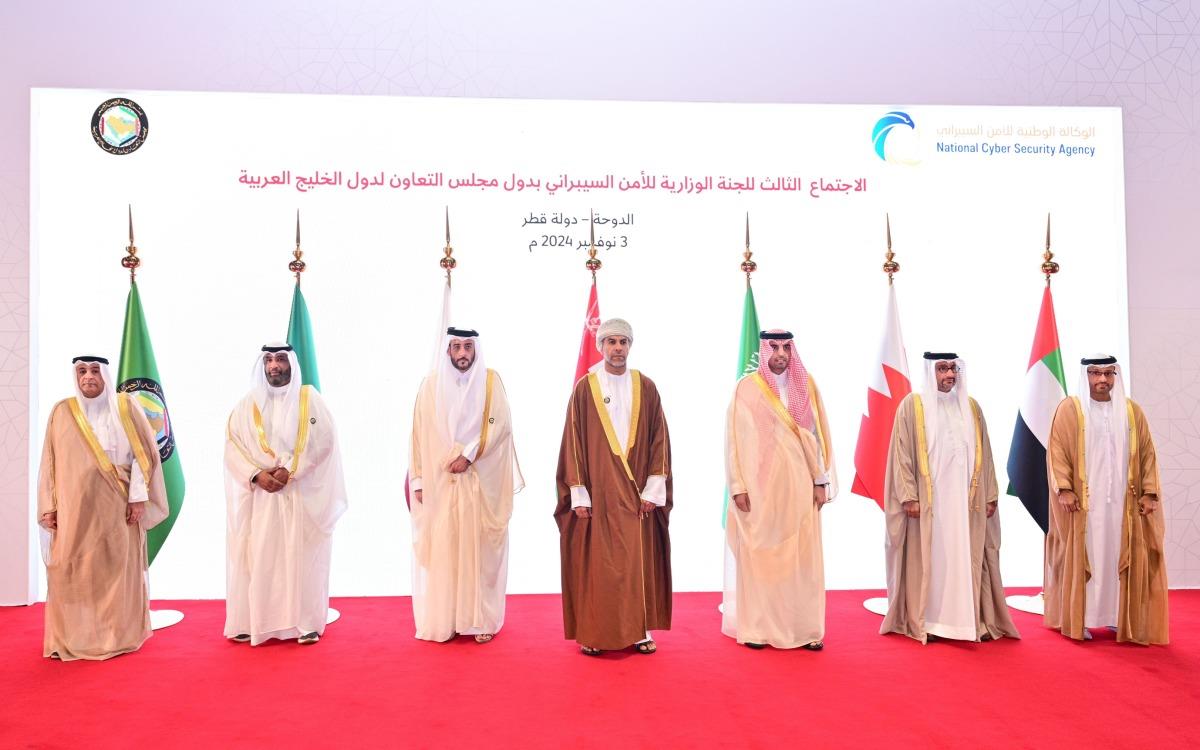
Qatar Hosts GCC Ministerial Committee Meeting For Cyber Security
Doha, Qatar: The State of Qatar hosted yesterday, the 3rd Ministerial Committee Meeting for Cyber Security in the GCC countries, led by President of the National Cyber Security Agency H E Eng. Abdulrahman bin Ali Al Farahid AlMalki, alongside Secretary General of the GCC H E Jasem Mohammed Al Budaiwi, and prominent delegation members from across the region.
The meeting marked a significant milestone in regional cybersecurity collaboration, with the official launch of the Gulf Cyber Security Strategy and a unified platform to facilitate real-time sharing of information on cyber threats among GCC countries. Additionally, key outcomes from recent cybersecurity committee were reviewed, with formal adoption of their recommendations, including the scheduling of the third Gulf Cyber Drill set for November 2024 in Qatar.
In his opening speech, Eng Abdulrahman bin Ali Al Farahid Al Malki highlighted the achievements made since the committee's inaugural meeting.“Since our first meeting, we have accomplished numerous milestones, advancing the security and resilience of our cyberspace through the activation of technical teams and the finalization of the Gulf Cyber Security Strategy,” he said.
“We are confident that implementing this strategy will unlock new opportunities to elevate the GCC's regional and global cybersecurity standing.”
He highlighted the rapid increase in threats and the evolving sophistication of attack methods, which now extend beyond financial impacts to compromise the mental well-being of users. He underscored the critical role of cybersecurity institutions in crafting proactive strategies to counter these emerging risks, emphasizing the need to continually raise awareness, advance skill development, and strengthen international cooperation.
Al Malki also addressed the emerging challenges and opportunities stemming from advancements in Artificial Intelligence (AI). While AI offers remarkable benefits to society, it also presents risks, that can threaten public interests such as conducting fraudulent activities through the use of Deepfake technology. Additionally, AI advancements amplify vulnerabilities in critical sectors by enhancing traditional cyber attacks methods.
He emphasised that the primary challenge lies in achieving a balanced approach to steer AI technology towards positive outcomes for nations and organisations which requires identifying and mitigating risks, while intensifying regional and international cooperation.
He stressed the importance of regular training courses, workshops, and joint drills, highlighting them as essential tools for exchanging expertise and transferring knowledge, which will contribute to strengthening and developing the national cybersecurity workforce.
Jasem Mohammed Al Budaiwi, commended the GCC member countries for their remarkable achievements in cybersecurity. He noted that five out of the six GCC countries attained“Category I” classification as leading models in cybersecurity in the 2024 Global Cybersecurity Index (GCI) issued by the United Nations International Telecommunication Union (ITU).

Legal Disclaimer:
MENAFN provides the
information “as is” without warranty of any kind. We do not accept
any responsibility or liability for the accuracy, content, images,
videos, licenses, completeness, legality, or reliability of the information
contained in this article. If you have any complaints or copyright
issues related to this article, kindly contact the provider above.


















Comments
No comment